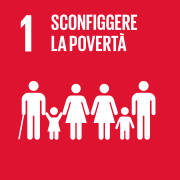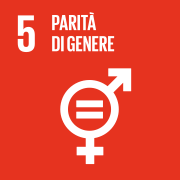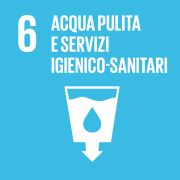
Not all scientific errors are made in good faith. Sometimes someone is ‘too’ convinced of his theories and goes so far as to falsify data, damaging not only himself but also the credibility of science. This is an obstacle in the common path towards a more sustainable world and requires swift intervention by the scientific community to put us back on track.
A world where food choices reveal hidden secrets of our character. Where a simple steak makes us selfish, while a carrot salad turns us into champions of altruism. Guiding us through this surreal world is one man: Diederik Stapel, professor of social psychology and … master of creating alternative realities. Stapel’s parable is a meteoric rise followed by an equally rapid fall.
The carrot and steak theory
In the early 2000s, Diederik Stapel emerged as one of the brightest stars in social psychology. A professor at Tilburg University in the Netherlands, Stapel is a scientist with the charisma of an influencer and the confidence of a rock star. His research seems to answer profound questions with disarming simplicity. One of his best-known studies suggests that carnivores are, on average, more selfish than vegetarians and vegans.
The premise is intriguing: if you give up meat to save animals and the planet, aren’t you demonstrating intrinsic altruism? On the contrary, those who dive into a rare steak seem to think more about satisfying their own desires than those of others. Stapel’s studies seem to offer scientific confirmation of these ethical paradigms, providing perfect conclusions for popular magazines and those who like a bit of moralising with a side order of statistics.
He does not stop there: in another study, Stapel explores the effects of dirty environments on social behaviour. According to him, being in a dirty and messy environment would make us more racist and less tolerant. His argument is simple: external clutter creates internal clutter. An idea that Marie Kondo would surely have included in her book ‘The Magic Power of Tidying Up’. These findings are now making their way around the world, providing mothers all over the planet with a new weapon to convince their children to civilise their rooms. A stroke of genius combining home marketing and psychology!
Creative genius
But how does Stapel get the results so clean, so neat, so… perfect? Anyone who has ever conducted research knows that data are like cats: they never behave the way we want them to. Yet in Stapel’s work, everything seems to align with his assumptions in a miraculous way. The perfection of his results is not the result of chance, but of a much more ‘creative’ process than one might imagine.
Stapel, unlike his more honest and scrupulous colleagues, had decided that, instead of letting real data spoil a good story, he would simply make up the data. And so he does. We are not talking about minor manipulations or adjustments here and there: we are talking about sheer fabrication. It’s as if, during a poker game, he decides to draw winning cards because he doesn’t like the ones he has in his hand.
The salad bowl tips over
In early 2011, some young researchers at the University of Tilburg, where Diederik Stapel used to teach, began to be suspicious of his studies. Problems arise when they try to replicate his experiments, particularly those on the behaviour of carnivores and vegetarians and the effects of dirty environments on racism. Despite scrupulously following the methodologies described by Stapel, the results do not at all match those published. The first doubts are raised: Stapel’s data are too perfect, too linear, almost too good to be true.
The young researchers begin to discuss the anomalies with other colleagues and discover that they are not the only ones who have difficulty replicating Stapel’s results. Others, in fact, have noticed inconsistencies in the graphs and statistics presented in his articles, as if some trends had been ‘recycled’ from one experiment to another. Their frustration grew and, under the guidance of some senior professors, they decided to report these anomalies to the university’s ethics committee.
The following internal investigation reveals the extent of the fraud: Stapel invented entire data sets, including participants, conditions and measures, to make his theories seem more solid and convincing. On 28 November 2012, the joint report of no less than three investigative committees establishes that he has falsified at least 58 publications and 3 contributions in scientific books, a shocking number that makes the academic world shudder. It seems that the social psychology genius is actually a serial fraudster.
This event prompts the university to review its supervision and verification processes, highlighting the importance of transparency and integrity in scientific research. The courage of these young researchers and their determination to follow the data, despite the risks to their own careers in questioning an undisputed authority, prove crucial in exposing one of the biggest scientific frauds of recent years.
The fascination of stories
It is easy to imagine Stapel as a character from the theatre of the absurd: a brilliant academic who, in search of the perfect twist, decides to take creative shortcuts rather than face the harsh realities of empirical data. In some ways, his story resembles that of a novelist who, dissatisfied with reality, decides to rewrite it to suit his own tastes.
But what drives Stapel to deviate so drastically from the straight and narrow path of science? Part of the answer lies in the pressure to publish, publish and publish again that dominates academia. In a system where the quantity of scientific articles is often considered more important than their quality, some scholars are tempted by shortcuts. And if we add the desire for fame and peer approval, we get the perfect cocktail for an academic tragedy.
The return to reality
Stapel is a man who loves to tell stories and has a natural talent for engaging audiences. In his invented experiments, Stapel manages to imply compelling narratives that seem to come straight out of a movie: carnivore versus vegan, chaos versus order, racism versus tolerance. Too bad these are more like scripts from a theatre of the absurd than representations of reality.
Let’s be clear: there is no doubt that eating meat poses serious problems, not only ethically but also in terms of environmental impact; but carnivores (or, rather, omnivores) are not automatically more selfish than vegans. And a dirty and messy environment certainly disturbs and makes one less productive, but it does not necessarily cause more intolerance.
Derailment and how to get back on track
In the end, Stapel agrees to admit his faults. His love of storytelling and his desire for visibility (for better or worse) lead him to write a memoir – ingeniously titled ‘Derailment’ – where he explains how it all began when, to support his ideas, he replaced an unexpected 2, the result of an experiment, with a 4, much more consistent with his theory. And then, the vice of altering data took control of his life, until the final tragedy.
Perhaps that very book is the main contribution that Stapel leaves us: the lucid and detached analysis of the genesis and development of his drives, amid insecurities, frustrations, fears and guilt. Well, after all, he wasn’t a psychology professor for nothing!
Diederik Stapel’s story is a reminder to us all. Science is not perfect, but it is precisely its imperfection that allows it to grow and improve. Even when it stumbles – sometimes due to individuals like Stapel taking the easy way out – the scientific community has the ability to self-correct. Mistakes, when discovered and addressed, become valuable lessons. And so, even missteps can contribute to progress.
The great thing is that, in the end, it is always the scientific method that prevails. And while we enjoy a nice carrot salad (or, maybe just once a week, a little bit of meat) and tidy up our messy desk, we can be thankful that, despite the detours and mistakes, science always finds a way to … get us back on track.
















